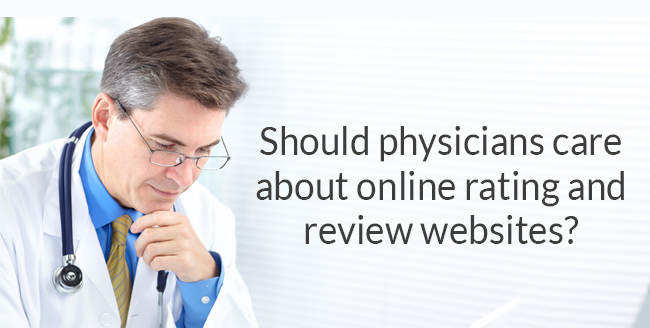Doctors often overlook patient rating and review websites simply because they take time. What they do not realize is that dedicating 5 to 10 minutes per day to such sites can pay massive dividends in retaining existing patients and attracting new ones.
In 2013, a survey by the healthcare technology company Digital Assent revealed that 72% of the respondents decided against visiting a doctor due to negative reviews. In 2015, things are no different.
(Online-reviews-embed)
Here is a simple 7-step process to help you become an online success.
- Claim your listings
When searching for a practice or physician online, virtually every new patient comes across review and rating websites, such as Novel Health. As a physician, you need to first identify the first few sites on which your practice is listed by simply searching for your practice’s name on Google. Next, click on each of these listings individually, and look for a link that allows you to log in and “claim” the profile. After entering basic information, you are able to verify your identity.
- Marketing your profile
Once you have claimed your listing, you are able to correct and update information such as your practice’s phone numbers and postal address. This is extremely important as these sites are commonly used by new patients to find out a practice’s contact details. You can also enter a brief description and a few pictures of your practice to give you an edge over your competitors.
Furthermore, claiming your listing allows the site to automatically send you e-mail notifications whenever a new comment or review regarding your practice is posted on the site. Using this, you can easily monitor patient comments regarding your practice.
- Respond to Reviews
Both existing and potential patients will see that you truly care about their opinions if you respond to their reviews. While the dos and don’ts of negative reviews are somewhat tricky and mentioned below in detail, positive reviews should be responded to promptly and cordially. Some doctors also hire businesses that specialize in providing reputation management services by handling online activities, but following our suggestions can help you avoid that extra cost.
- Expect the unexpected
While doing all you can to increase the number of positive reviews, try to curtail the negative ones, as much as you can. Comment cards and brief e-mail questionnaires, after every visit, can decrease the number of negative reviews posted online. Patient portals in EHR software also allow for greater interaction with patients, and have the provision to transfer lab reports, tests etc. This keeps the patients happy and patients often resort to these mediums to express their queries or problems, instead of online websites.
When faced with negative reviews, never panic., Try not to confirm if the reviewer is your patient, and when responding to a review, never reveal the reviewer’s personal information. Moreover, derogatory, offensive or off-topic reviews should never be responded to, and should be forwarded to the rating site for immediate removal.
- Getting clients to comment
Next, encourage satisfied patients to provide feedback on these forums. It takes only a few minutes to comment and review, so many of your patients might do so. A high number of positive online reviews increases the likelihood of potential patients seeing them, and consequently visiting your practice.
Getting patients to comment can be done through simple strategies, such as sending your patients e-mails requesting them to post online reviews after every visit. Electronic Health Record (EHR) software are increasingly being used to automatically send email reminders, alerts, and even birthday greetings to patients. In addition to being extremely convenient, this is a great way to create goodwill.
- Other web sources
While review and rating websites are immensely important for promoting your practice, it is not wise to direct all your efforts towards this one medium. Your own website with your information and a few pictures of your practice, in addition to a presence on social media sites such as Facebook and Twitter, will considerably enhance your client base. Several doctors also use patient portals on EHR systems as substitutes for websites. Additionally, social media pages are generally free and have millions of daily users, of whom, a significant portion could become new clients.
- Prioritize privacy.As always, be sure to follow privacy regulations, including HIPAA, if interacting with patients online.
You can learn more about Online Reputation Management here.

Join the Discussion!